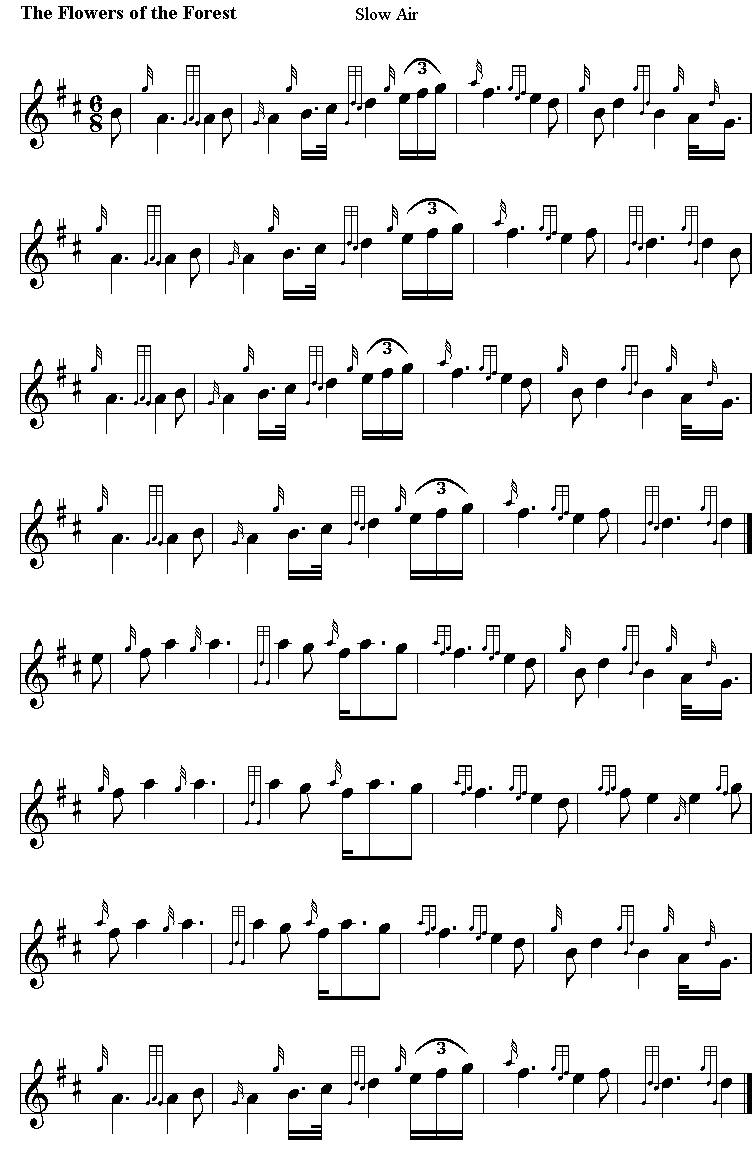The first verse of the song contrasts happier times with grief at the losses:
I've
heard the singing, at
the ewe-milking,
Lassies a-singing before
dawn of the day;
But now they are moaning
on every milking-green;
"The Flowers of the
Forest are all withered
away".
Sorrow and woe for the
order sent our lads to
the Border!
The English for once, by
guile won the day,
The Flowers of the
Forest, that always
fought the foremost,
The pride of our land
lies cold in the clay.
I've
heard the singing, at
the ewe-milking,
Lassies a-singing before
dawn of the day;
But now they are moaning
on every milking-green;
"The Flowers of the
Forest are all withered
away".



